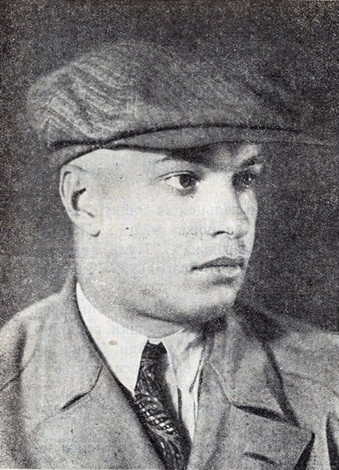Poltoratsky, Oleksii
Poltoratsky, Oleksii [Полторацький, Олексій; Poltorac'kyj, Oleksij], b 1 December 1905 in Chernihiv, d 15 March 1977 in Kyiv. Writer, publicist, and critic. He graduated from the Kyiv Institute of People's Education in 1926. Together with Mykhailo Semenko he edited the Kharkiv futurist journal Nova generatsiia from 1927 to 1930. After the Second World War he was editor in chief of Ukraïna (1948–52), Vitchyzna (1948–52), and Vsesvit (1958–71). As a theoretician of Ukrainian futurism in the 1920s he was often harshly attacked by official criticism until he conformed to the Communist Party line. His Literaturni zasoby (Literary Devices, 1929) was one of the first vulgarizations of the sociological method in Ukrainian literary criticism. In the 1930s he published a few travelogues, including Ostanni dni burkhaniv (The Last Days of the Storms, 1930) and Ataka na Gobi (Attack on the Gobi, 1936). He also wrote a few stories about Nikolai Gogol (1941, 1954, 1957), which were in line with the official interpretation of ‘Ukrainian-Russian friendship.’ After the Second World War he published a number of essays concerning his travels outside the Union of Soviet Socialist Republics, as well as the war novel Liudy idut' u vohon' (People Go into the Fire, 1965). He abetted the KGB’s quest for the destruction of Ukrainian culture by writing pamphlets against Ukrainian political émigrés (eg, Ukraïns'ki burzhuazni natsionalisty—nailiutishi vorohy ukraïns'koho narodu [Ukrainian Bourgeois Nationalists, the Fiercest Enemies of the Ukrainian People, 1953]), apologia for Russification and for the repression of defenders of Ukrainian culture, and attacks on dissidents, such as Sviatoslav Karavansky, Viacheslav Chornovil, and Ivan Dziuba.
Ivan Koshelivets
[This article originally appeared in the Encyclopedia of Ukraine, vol. 4 (1993).]

